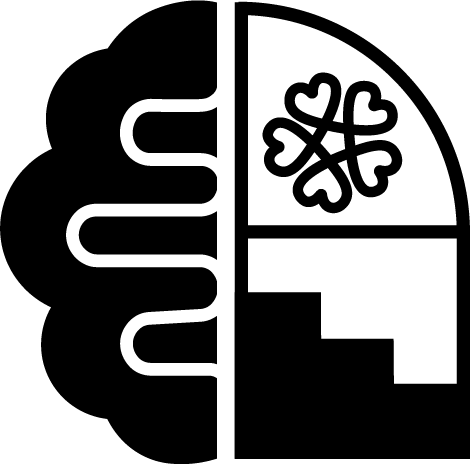The Impact of Social Media on Mental Health: Unveiling the Connection and the Role of Psychology
Social media has revolutionized the way we connect, share, and interact in the digital age. With its widespread adoption, it has become an integral part of our daily lives. However, alongside its benefits, concerns have emerged about the potential impact of social media on mental health. In this blog post, I will explore the intricate relationship between social media and mental health, and the role psychologists, anxiety, and therapy play in understanding and addressing these concerns.
The Allure and Pitfalls of Social Media
Social media platforms offer an array of benefits, such as instant communication, information sharing, and virtual communities. They allow us to connect with friends and family, share life milestones, and stay informed about current events. However, the constant exposure to curated and often idealized versions of others' lives can contribute to negative mental health outcomes.
1. The Comparison Trap and Self-Esteem: Social media often promotes unrealistic standards of beauty, success, and happiness. Constant exposure to carefully curated posts can lead to feelings of inadequacy, lower self-esteem, and increased social comparison. Psychologists recognize that this can contribute to anxiety and depression among individuals, especially when they perceive themselves as falling short in comparison.
2. Cyberbullying and Online Harassment: The anonymity provided by social media platforms can embolden individuals to engage in harmful behavior. Cyberbullying and online harassment can have severe consequences for mental health, leading to increased anxiety, stress, and even suicidal ideation. Psychologists play a crucial role in understanding and addressing these online threats, providing support and guidance to those affected.
The Impact of Social Media on Anxiety
Anxiety disorders are among the most prevalent mental health conditions worldwide. It is increasingly evident that social media use can contribute to the development or exacerbation of anxiety symptoms.
1. Social Comparison and Self-Esteem: The constant exposure to carefully curated and idealized versions of others' lives can contribute to negative social comparison and feelings of inadequacy. This can lead to lower self-esteem, increased anxiety, and depressive symptoms.
2. Fear of Missing Out (FOMO): Social media platforms often highlight others' experiences and events, creating a sense of missing out on important or enjoyable moments. The fear of missing out (FOMO) can intensify feelings of anxiety and a constant need to stay connected, leading to compulsive social media checking and a sense of being left behind.
3. Information Overload and Cognitive Overwhelm: The constant influx of news, opinions, and updates on social media can overwhelm individuals, leading to cognitive overload and heightened anxiety. Psychologists acknowledge the impact of information overload on mental well-being and emphasize the importance of digital detox and setting boundaries for healthy social media consumption.
4. Sleep Disruptions: The use of social media, particularly before bedtime, can disrupt sleep patterns. The exposure to stimulating content, blue light emission, and the addictive nature of scrolling can interfere with sleep quality, leading to fatigue, mood disturbances, and impaired mental well-being.
5. Addiction and Excessive Use: Social media can be addictive, with individuals experiencing difficulty in controlling their usage. Excessive use can contribute to decreased productivity, social withdrawal, and neglect of real-life relationships, leading to feelings of isolation and loneliness.
6. Impact on Body Image and Eating Disorders: Social media platforms often promote unrealistic beauty standards, leading to body dissatisfaction and an increased risk of developing eating disorders. Exposure to images of "ideal" bodies can contribute to body shaming, disordered eating behaviors, and distorted body image perceptions.
Harnessing Social Media for Mental Health Support
While social media poses challenges, it also holds potential as a tool for mental health support and education. Psychologists and mental health professionals are leveraging these platforms to reach wider audiences and provide valuable resources.
1. Online Support Communities: Social media platforms offer opportunities for individuals to connect with others facing similar mental health challenges. Support groups and communities focused on anxiety, depression, and other mental health concerns can provide validation, encouragement, and a sense of belonging.
2. Mental Health Advocacy and Education: Psychologists and mental health professionals are utilizing social media to disseminate accurate information about mental health, challenge stigmas, and promote self-care strategies. Platforms serve as channels to raise awareness, provide psychoeducation, and encourage seeking therapy or professional help when needed.
The Role of Therapy in Navigating Social Media and Mental
Therapy plays a vital role in understanding and addressing the complexities of social media's impact on mental health. Psychologists and therapists offer support, guidance, and evidence-based interventions tailored to individual needs.
1. Cognitive-Behavioral Therapy (CBT): CBT is a widely used therapeutic approach for managing anxiety and other mental health conditions. Psychologists help individuals identify and challenge distorted thoughts related to social media, develop healthier coping mechanisms, and establish more balanced and realistic perspectives.
2. Mindfulness-Based Interventions: Mindfulness techniques, such as mindfulness-based stress reduction (MBSR) and mindfulness-based cognitive therapy (MBCT), can help individuals cultivate awareness of their social media usage, regulate emotional responses, and develop a healthier relationship with technology.
3. Digital Well-being Strategies: Psychologists can assist individuals in developing personalized strategies for managing social media use and promoting digital well-being. This includes setting boundaries, establishing tech-free zones, and incorporating self-care activities to balance online engagement.
As social media continues to evolve and influence our lives, understanding its impact on mental health is paramount. Psychologists, with their expertise in anxiety and therapy, play a crucial role in studying and addressing the challenges posed by social media. By harnessing the positive aspects of these platforms and implementing strategies to mitigate the negative effects, we can create a healthier digital landscape that promotes mental well-being for all.
If you are someone you know have your mental health impacted by social media and wish to give therapy a try, please contact The Psychology Alley to make an initial appointment with a psychologist near you.

